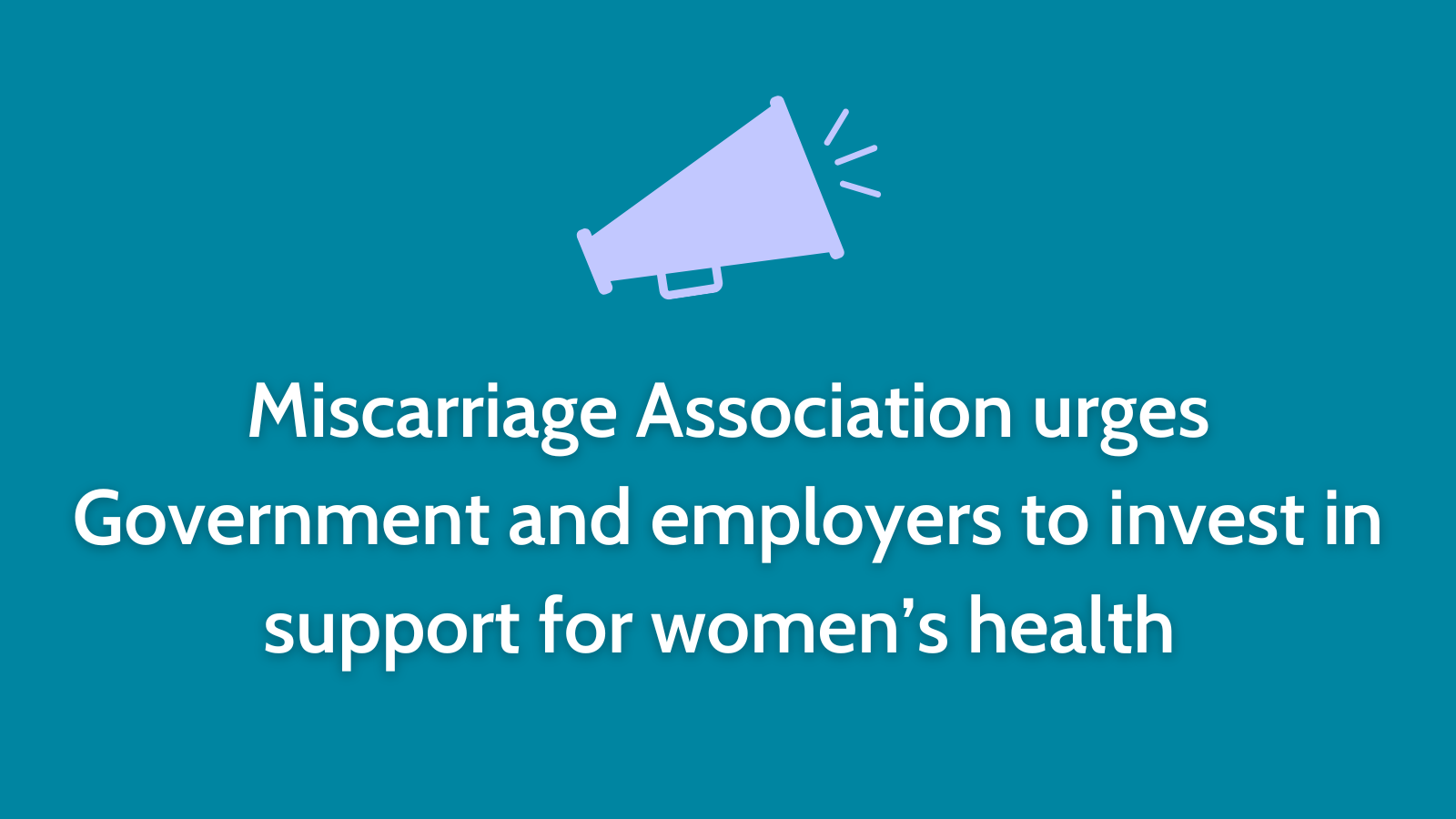Miscarriage Association urges Government and employers to invest in support for women’s health
10th April 2025

We have thrown our support behind an open letter to Employment Minister Alison McGovern, calling on the Government to take action on women’s health in the workplace.
Penned by 28 organisations, including the Chartered Institute of Professional Development (CIPD) and Society of Occupational Medicine (SOM), the letter pushes for further action to help employers invest in best practice policies for pregnancy and baby loss, menopause, fertility and menstruation.
Implementing lasting and meaningful support for women’s health ensures that the policies, advice and direction women are looking for are available when they need it most. With women making up nearly half of the UK labour market, it’s time that women’s health policies are in implemented in workplaces as standard.
The reality of workplace support for women’s health issues
Many women’s health issues still do not have the support they deserve in the workplace. Research undertaken by the CIPD and Simplyhealth demonstrates that:
Only 37% of employers offer provision for pregnancy loss
Just 26% of employers offer support for fertility issues
As little as 18% of employers provide for menstrual health challenges
Managing and coping with these conditions and issues without the necessary support from workplaces can lead to time off work, stalled careers, and having to break from employment.
Proposed action
The joint letter urges the government to take action by reviewing the workplace support currently available for women’s health and reproductive challenges, launching a campaign to instill confidence and motivation in employers to implement this support, and broadening access to health services and provisions.
Vicki Robinson, Chief Executive of the Miscarriage Association, said:
“We know that women who are supported in the workplace during and after a pregnancy loss are likely to take less time off overall and be more effective when they do return. With a lack of support, the opposite is true. Yet there is still no formal guidance on how employers should manage this. We are seeing a growing number of employers take the initiative and instill proper policies and support, but unfortunately this is still not the norm, leaving women facing a lottery of support at one of the most difficult times of their lives.
“We are 100% behind this campaign to encourage the Government to close the gaps in workplace guidance and support.”
Rachel Suff, senior policy and practice adviser for wellbeing at the CIPD, said:
“With supportive employer policies, better people management support and the opportunity to access specialist occupational health support, we can keep more women in fulfilling and productive work. This will not only benefit individuals, by reducing inequality and supporting personal wellbeing, but will also be good for business and the economy by helping retain vital skills that contribute to positive business outcomes.
“We need the government to play its part by reviewing where the gaps in support exist, supporting employers to develop flexible and compassionate workplaces, and widening access to occupational health services.”
Emma Persand, chair of SOM’s Women’s Health at Work Network, said: “Occupational health is not a luxury or an afterthought – it is the foundation of sustainable productivity and human dignity in the workplace.
“We need urgent, coordinated action from employers, policymakers, and health systems to integrate occupational health into broader public health and labour strategies. This requires genuine investment in preventive care, better enforcement of safety standards, and inclusive policies that protect all workers – regardless of their status or sector.”
